Bethany Langer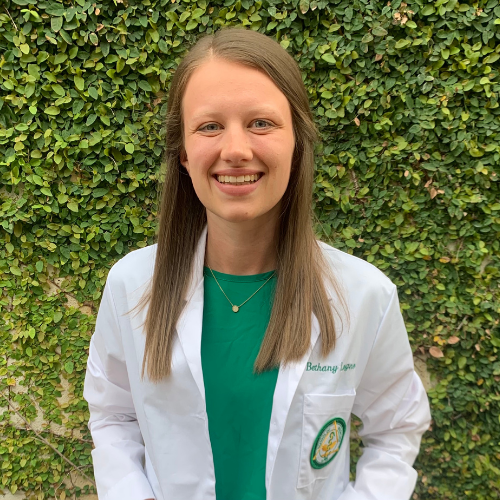
1. Where are you from?
Guntersville
2. What made you want to become a doctor?
I didn’t know until my junior year of college that I wanted to be a doctor. Before that, I spent hours researching different fields and taking career tests, but once I shadowed some doctors and worked in clinical research, I knew this is the field I wanted to pursue!
3. What is your favorite Birmingham spot?
Can’t name just one! Coffee wise, Saturn or Seeds. If it’s night and I want some wine and a charcuterie board, then Avine for sure.
4. What is something about being a medical student that more people don’t realize?
You can still have a life outside of school.
5. What made you choose UAB?
Growing up in Alabama, I saw the impact that UAB had on patients and the medical community, so once I decided to pursue a degree in medicine, I knew this is where I wanted to be!
6. What are some of the differences you’ve noticed in being a professional school student (expectations, pressures, visibility, etc.) than those of an undergrad or graduate school student?
In both my undergraduate and master’s degree, I felt a sense of pressure, but not to the level that I feel as a medical student. It’s a different atmosphere that I am still getting used to, but it’s rewarding and worth it.
JC Nichols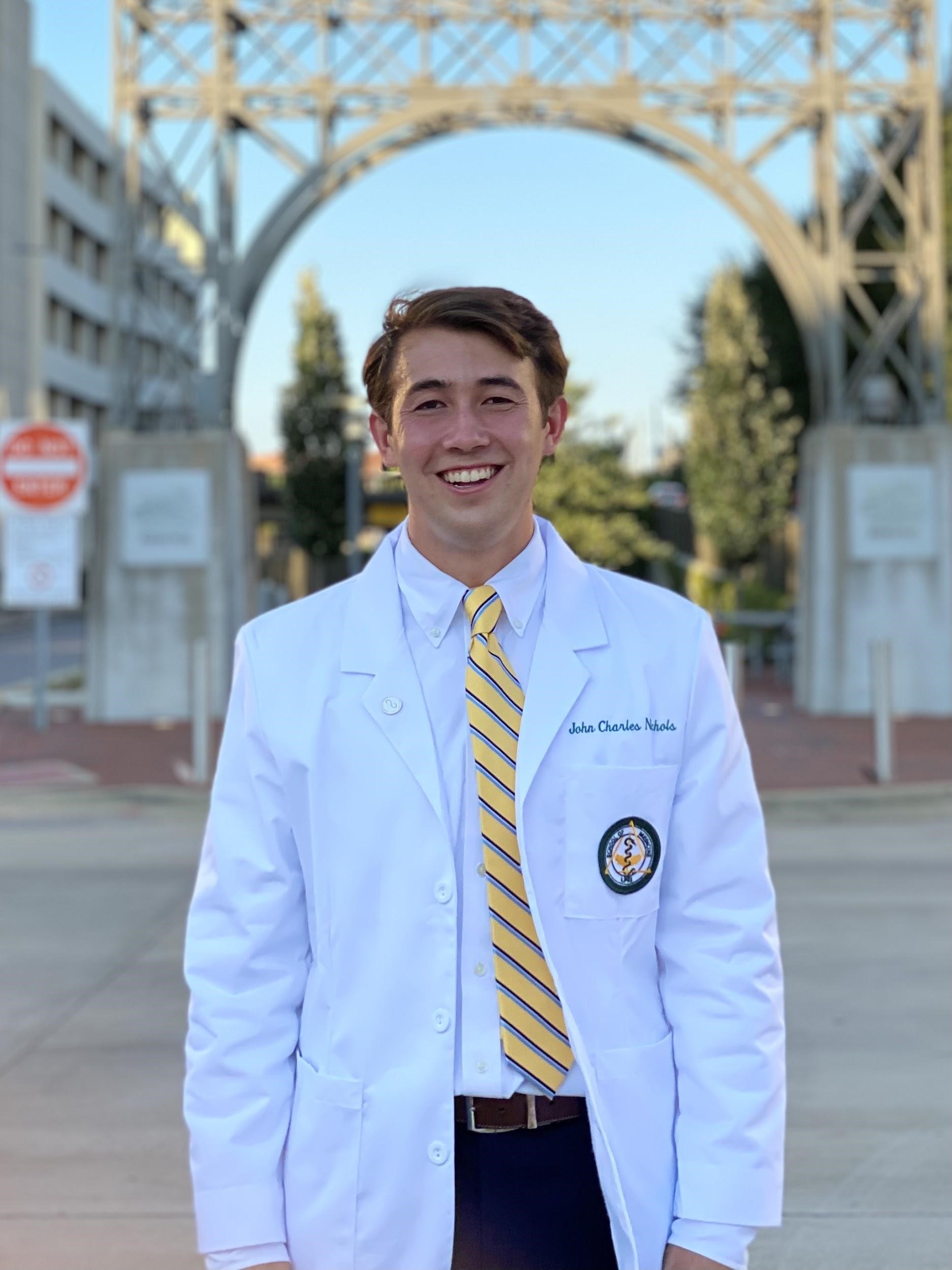
1. Where are you from?
Hoover
2. What made you want to become a doctor?
I was blessed by wonderful parents who taught me the value of the gift of serving others, both with their words and their lives. Because of this, once I realized I wouldn’t make it to the major league, I knew whatever I chose to be when I grew-up had to involve daily placing the needs of others before myself. I knew this would make work joyful and something that gave to me more than I gave to it. Although I used to think of doctors like heroes, the more time I spent around medicine the more I realized that patients are the true heroes. The physicians are given the opportunity to step into their story, play a very minor supporting role, and help cheer them along. What better job could there be than that?
3. What is your favorite Birmingham spot?
Volker Hall! Just kidding... probably Railroad Park. I love how it is nestled right in the middle of the city and am thankful for the community it provides. At Railroad Park I've played soccer with classmates, done a workout with my LC mentor (which almost killed me), had a picnic to celebrate finishing a block, and gone on walks or enjoyed coffee with friends (all distanced this year, of course). I also love how Railroad is so close to Regions Field, and I look forward to watching baseball there again (hopefully soon)!
4. What is something about being a medical student that more people don’t realize?
When talking about medical school, nobody mentions the fact that you are basically handed rooms (or zooms) full of pre-screened top-notch friends that someone else has already vetted as caring, compassionate, and intentional people. For some reason, I still find myself surprised by how kind and selfless all my classmates are.
5. What made you choose UAB?
Growing-up in Birmingham, I had a lot of prior knowledge about why UAB is a great medical center. However, when I came to UAB's preview day, I learned why UAB is a great place to be trained in the art of medicine. What struck me most and my main reason for choosing UAB was the people - at UAB I found leaders who care about the experience of each student, faculty who desire to produce patient-focused physicians, and students who support one another in hopes that everyone succeeds. The friendships and mutual support amongst students made it clear UAB was where I wanted to be.
6. What are some of the differences you’ve noticed in being a professional school student (expectations, pressures, visibility, etc.) than those of an undergrad or graduate school student?
One of the biggest differences in professional school and undergrad is the caliber and drive of students surrounding you. While in some ways it can be tough to adjust to being just one of 180+ highly-driven students, overall this is a huge blessing because your friends will inspire and teach you often. In the day to day, I think the biggest adjustment is the volume of information to learn. You’ll hear an analogy that med school is like being given 10 pancakes to eat each day, which is exciting at first! But whatever you don’t eat one day is added to tomorrow’s plate. I often have so many pancakes to eat that I’ve run out of room on my dining room table. That’s where those top-notch students surrounding you enter in – to help you start making your way through the stacks of pancakes you’ve let pile-up.
Elissa Dykes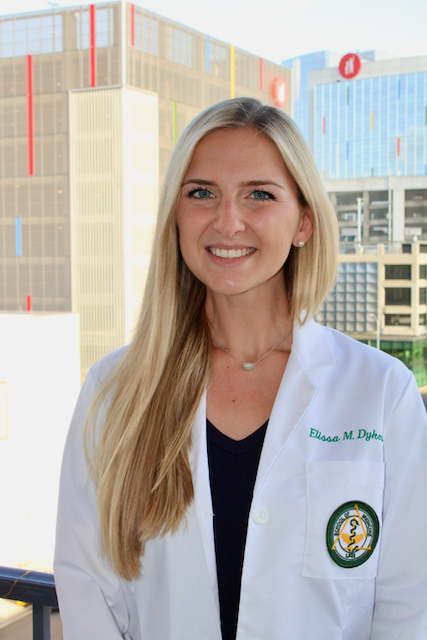
1. Where are you from?
I grew up in Stratford, Connecticut and went to college in Raleigh, North Carolina at NC State University. About three years ago my family moved to Huntsville.
2. What made you want to become a doctor?
I want to make a difference in this world that is much larger than myself. I love science, the uniquities of people, and healthcare as a whole - medicine is the perfect combination of all of that.
3. What is your favorite Birmingham spot?
I really enjoy going to Railroad Park. It’s super close to my apartment so I’ll often go there to walk or sit outside with friends.
4. What is something about being a medical student that more people don’t realize?
I believe people often think medical school has to be your whole life. I have found that having outlets is incredibly important such as working out, being with friends and family, and even taking part in the hobbies that make you happy. It is possible to balance these outside activities with school and makes the journey so much more enjoyable.
5. What made you choose UAB?
I chose UAB because of the Primary Care Track that they offer in Tuscaloosa. I find it very valuable that third year will be tailored to the essential aspects of medicine for a physician in the primary care field.
6. What are some of the differences you’ve noticed in being a professional school student (expectations, pressures, visibility, etc.) than those of an undergrad or graduate school student?
The workload is one of the major differences I have seen. Medical school is a full-time job and requires a lot more focus and preparation than undergraduate courses.
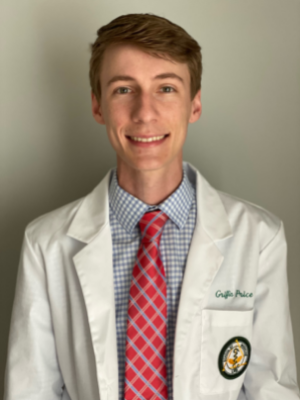 Griffin Price
Griffin Price
1. Where are you from?
Clanton
2. What made you want to become a doctor?
My original interest in becoming a doctor started when I was a young kid because my father is a doctor. As a little kid, I just wanted to be like my dad. I grew older and this interest stuck with me throughout high school because it was what I was most familiar with. However, as I started college, I began to volunteer and shadow. I began to get into the harder sciences. I made friends with other people wanting to become a doctor. I began to realize for myself that I loved learning, loved school, and was passionate about the patients I had interactions with throughout my different experiences. Lastly, I met some great doctors, such as my dad, who were smart in their field and showed compassionate, intentional, and outstanding care to their patients. Their patients believed in them. I want to do the same. My passion to become a doctor revolves around the opportunity to have an impact on a patient’s life by providing my best care that gives confidence to my patient that I will always do my best for them.
3. What is your favorite Birmingham spot?
My favorite Birmingham spot is Top Golf. I love golf and friends and this place combines both of those favorites. You can hang out and laugh while also playing golf with people who would usually never step foot on a golf course.
4. What is something about being a medical student that more people don’t realize?
I think as an incoming medical student, you may have only heard about how hard medical school is and how much you have to study. While this is all true, I do not think you realize from being on the outside that there is still plenty of free time and fun to be had. If you work hard every day and stay on top of things, you will have time for yourself and your other interests. Also, once you start learning actual medical knowledge, learning becomes so much more enjoyable and is something I look forward to every day. Yes, some days, motivation is lacking, but the material is much more enjoyable than say an Organic Chemistry course.
5. What made you choose UAB?
UAB has always been the medical school I wanted to attend. My father went to medical school here and I thought it would be awesome to attend the same medical school he did. Also, with going to Samford University, we were near UAB. I had the chance to explore the UAB campus a few times during my undergraduate and even made a few friends from UAB who shared the same fraternity as me. Overall, I believe UAB is an outstanding medical school that truly does its best to not only teach you as a medical student but train you to become a successful member of the medical community. I am grateful for the opportunity to attend this school.
6. What are some of the differences you’ve noticed in being a professional school student (expectations, pressures, visibility, etc.) than those of an undergrad or graduate school student?
The transition from undergrad to medical school is a big change. You go from having many friends with different majors to many friends all doing the same thing. Also, you go from doing school every once in a while to having to study almost every day. I would say there are similar expectations as far as the school work in terms of having to show up to receive attendance credit and needing to do good on exams. However, I would say the pressure is increased in medical school. The stuff you are learning will be stuff you need to do well not only on your exams, but also in clerkships, Step 1, and Step 2. So, I feel increased pressure to stay on track and to continually be learning instead of brain dumping on tests as you do in undergrad.
Emily Hooker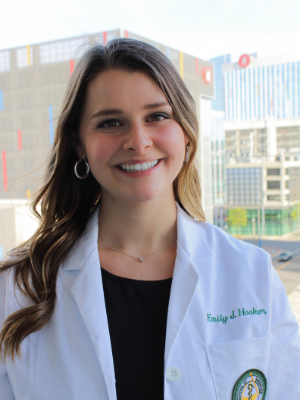
1. Where are you from?
Birmingham
2. What made you want to become a doctor?
I have always loved medicine but lacked the ambition to pursue medical school until I was a high school student working in rural Alabama. Witnessing such shocking health disparities just down the road from my hometown sparked a passion within me to serve the state of Alabama in an area with great room for improvement.
3. What is your favorite Birmingham spot?
When it’s warm and sunny, I love spending time at Railroad Park and the farmers market at Pepper Place.
4. What is something about being a medical student that more people don’t realize?
You can (and should) continue to prioritize the things that bring you joy! You don’t have to give up your hobbies and social life to succeed as a medical student.
5. What made you choose UAB?
Growing up in Birmingham, I have always known UAB as an incredibly impressive institution with international prestige. However, when I learned that one of UABSOM’s priorities is educating physicians who are passionate about serving the state of Alabama, I knew this is where I wanted to be.
6. What are some of the differences you’ve noticed in being a professional school student (expectations, pressures, visibility, etc.) than those of an undergrad or graduate school student?
Students who are accepted to professional schools are qualified and capable of entering the career field they are pursuing. As a result, our professors truly want us to succeed and are invested in our futures. They do not question whether or not we deserve to be here and instead are focused on keeping us here and preparing us to serve our patients well.
Lauren Silverwood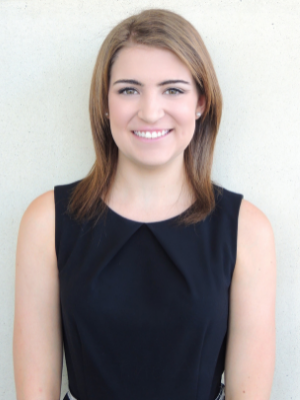
1. Where are you from?
Trussville
2. What made you want to become a doctor?
When I started my undergraduate studies at UAB, the school’s catchphrase was “UAB- Knowledge that will change your world”. At that time, the phrase didn’t mean much to me, but it has since come to mean everything to me. As a freshman in college, I knew I wanted a career that was focused on changing people’s lives, but I was primarily interested in pursuing a PhD. As I got involved in research projects (both formative and clinical) and various extracurriculars, I realized that I want to work directly with people as an advocate and as part of their support network. At the start of my junior year, I began volunteering at Children’s of Alabama in an in-patient setting and shadowing physicians in multiple disciplines. I immediately knew that medicine was the path for me after my first shift! Every subsequent shift only strengthened my love for medicine. I believe that medicine is the perfect marriage of my passions for life-long learning, service, science, and educating others. I am forever grateful for the knowledge and experiences that UAB has provided me; UAB really did change my world!
3. What is your favorite Birmingham spot?
The Vulcan, RedCat Coffee, and Red Mountain Park are my top three favorite places.
4. What is something about being a medical student that more people don’t realize?
While medical students spend a lot of time studying, they are also incredibly generous with their time and resources. I am continually impressed by the initiative that my peers demonstrate; when they see a need, they seek to fill it! This is important as it improves the health of communities while also building meaningful relationships.
5. What made you choose UAB?
I’ve graduated from UAB twice already (BS ‘18, MPH ‘20), and what has kept me coming back are the endless learning opportunities that UAB provides not only in the classroom, but through community service, research, and student interest groups, too! I have been able to participate in many engaging learning experiences that have made me much more aware of the world and human experience. Another great bonus is the quality of mentorship from faculty, physicians, and other students.
6. What are some of the differences you’ve noticed in being a professional school student (expectations, pressures, visibility, etc.) than those of an undergrad or graduate school student?
As a medical student, people around you (family, friends, and the community) will start to attribute more weight to your words and actions. People will trust your opinion about health decisions (i.e. COVID-19 vaccinations), and it important to be purposeful and tactful with your approach to those topics. Seriousness aside—it’s also likely people will start asking for medical advice before you’ve made it to organ modules, which can be a bit humorous when you’re still learning Fundamentals!
Eva Kurtts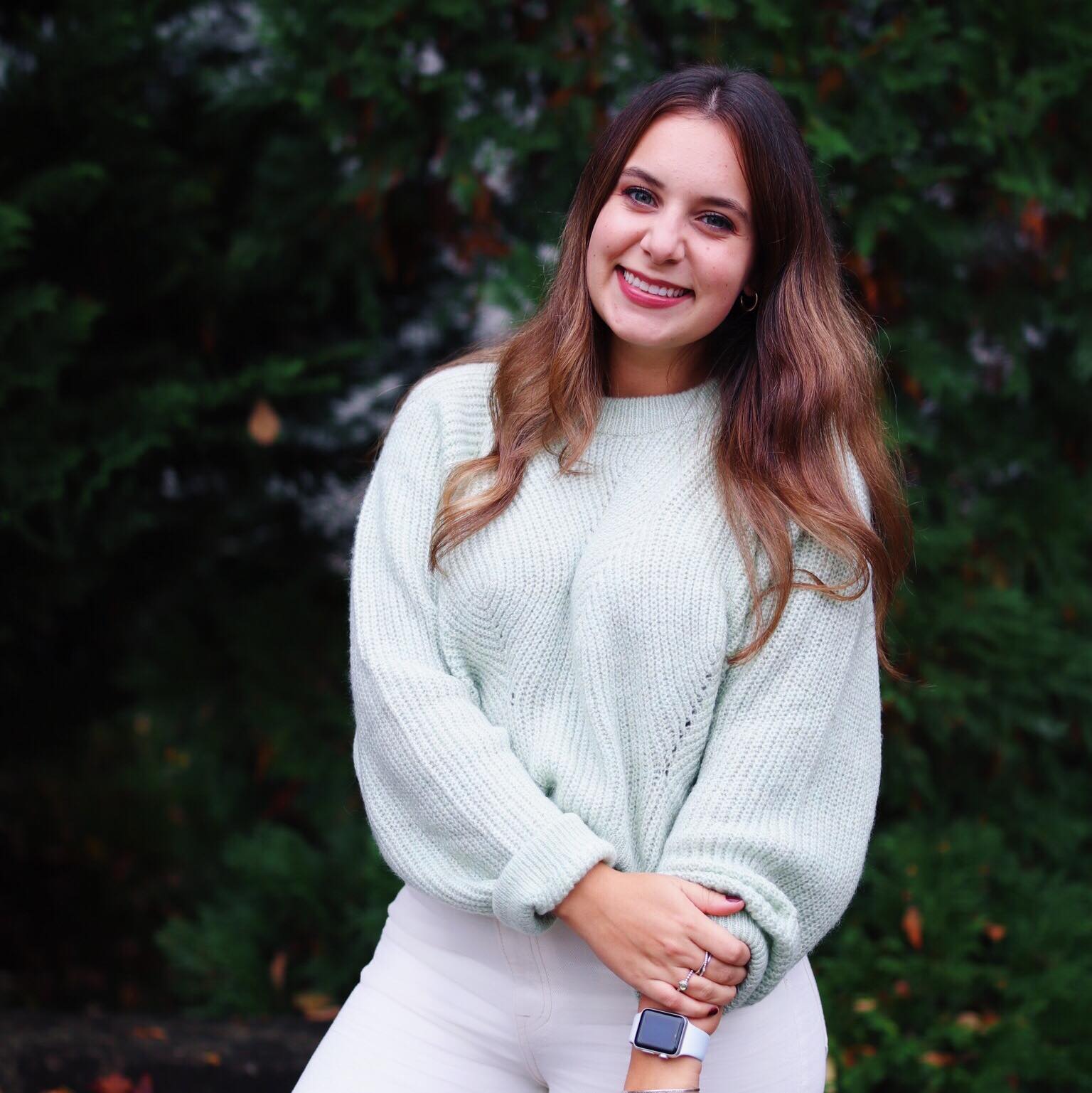
1. Where are you from?
Elberta
2. What made you want to become a doctor?
For me being a doctor was a bridge between two of my great passions: science and humanity. I’ve always been interested in people’s stories and understanding what makes them special. In addition, growing up in a small town I have been able to see the large positive impact that a local physician can have firsthand.
3. What is your favorite Birmingham spot?
Railroad Park! It’s so great to get outside after studying, and the people watching is unmatched (besides Walmart maybe). Once I saw someone in a Chewbacca costume doing yoga!
4. What is something about being a medical student that more people don’t realize?
I don’t think people realize how enjoyable being a medical student can be! Although there is a lot of studying, the classmates that you get to meet are unmatched. There is such a wide variety of interests and talents in each class.
5. What made you choose UAB?
During my time as an undergrad I participated in a summer internship with UAB, the Huntsville Rural Premedical Internship. Through this program I was able to meet UAB professors and staff. I loved my experience and the supportive atmosphere that I felt at UAB.
6. What are some of the differences you’ve noticed in being a professional school student (expectations, pressures, visibility, etc.) than those of an undergrad or graduate school student?
The biggest thing I’ve noticed is that you can make your own schedule! In undergrad there were always days full of class and labs etc. In addition, there is a lot more “life” happening.